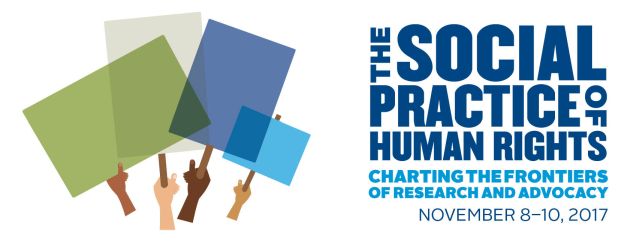
Start Date
11-8-2017 1:30 PM
Keywords
Research, Service Delivery, Human Trafficking
Abstract
The University of Toledo’s Human Trafficking and Social Justice Institute is conducting the PATH (Partners Against Trafficking in Humans) Project to develop the PATH Model. The PATH Project is a community-wide, coordinated, and data-driven response to human trafficking. PATH applies the structure and techniques from a successful and focused healthcare model called the Pathways Model. The vision is for the PATH Model to become an evidence-based model expanded throughout the United States.
PATH coordinates existing services to create a transparent, accountable, and comprehensive system to move clients along the continuum of care. The goal is to move victims from survivors to thrivers through linking them with an array of needed services.
Through PATH documenting and analyzing client movement while involved in services, themes related to the effectiveness of services and programming will be developed, as well as the barriers to and absence of services.
With a general understanding of human trafficking, we understand that abuse, force, and the loss of one’s identity, dignity, and humanness are all connected. The experience of human trafficking has long-term effects on the individual. The individual not only needs to be identified, but put on a path of recovery, restoration, and healing.
While “rescue” falls within the purview of law enforcement, recovery, restoration, and healing are the job of legal, health, and social service agencies. Recovery, restoration, and healing move the client beyond engagement, ultimately creating opportunities to restore individuals to mental, emotional, and physical well-being and economic stability.
Attendees will learn the origin of the PATH Project, its beginning stages, the process of developing the PATH Model, and some of the findings.
Included in
The PATH (Partners Against Trafficking in Humans) Project: Development of the PATH Model
The University of Toledo’s Human Trafficking and Social Justice Institute is conducting the PATH (Partners Against Trafficking in Humans) Project to develop the PATH Model. The PATH Project is a community-wide, coordinated, and data-driven response to human trafficking. PATH applies the structure and techniques from a successful and focused healthcare model called the Pathways Model. The vision is for the PATH Model to become an evidence-based model expanded throughout the United States.
PATH coordinates existing services to create a transparent, accountable, and comprehensive system to move clients along the continuum of care. The goal is to move victims from survivors to thrivers through linking them with an array of needed services.
Through PATH documenting and analyzing client movement while involved in services, themes related to the effectiveness of services and programming will be developed, as well as the barriers to and absence of services.
With a general understanding of human trafficking, we understand that abuse, force, and the loss of one’s identity, dignity, and humanness are all connected. The experience of human trafficking has long-term effects on the individual. The individual not only needs to be identified, but put on a path of recovery, restoration, and healing.
While “rescue” falls within the purview of law enforcement, recovery, restoration, and healing are the job of legal, health, and social service agencies. Recovery, restoration, and healing move the client beyond engagement, ultimately creating opportunities to restore individuals to mental, emotional, and physical well-being and economic stability.
Attendees will learn the origin of the PATH Project, its beginning stages, the process of developing the PATH Model, and some of the findings.


